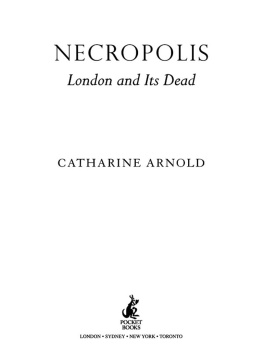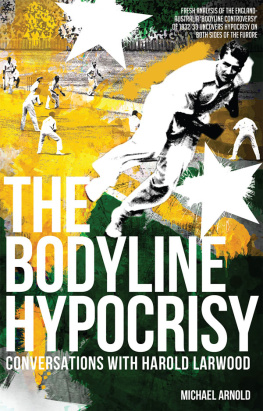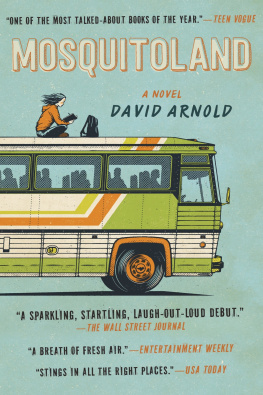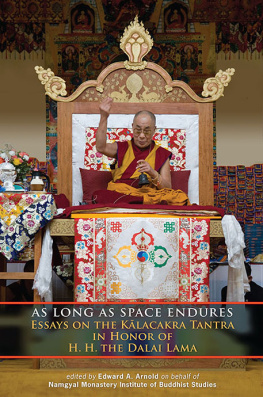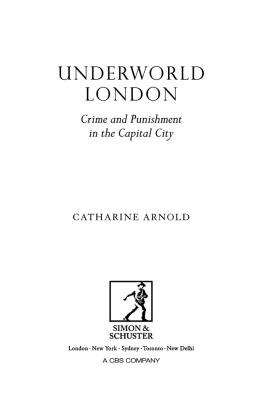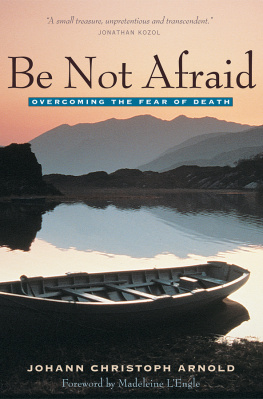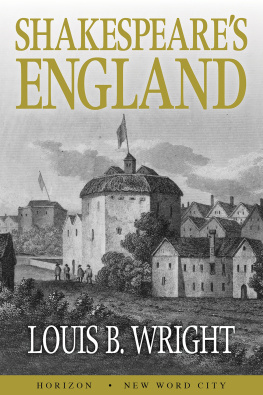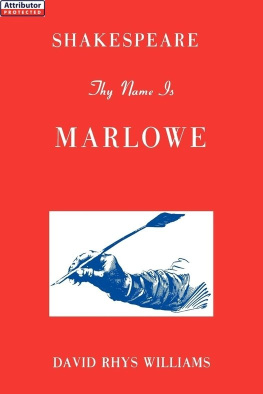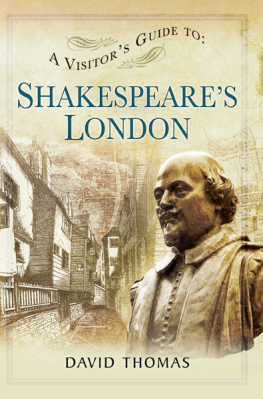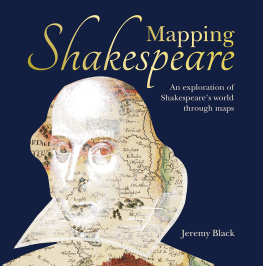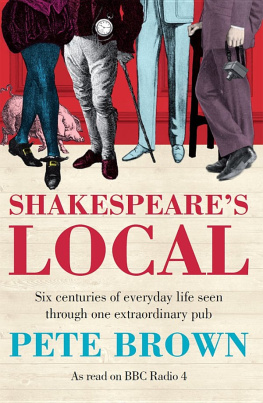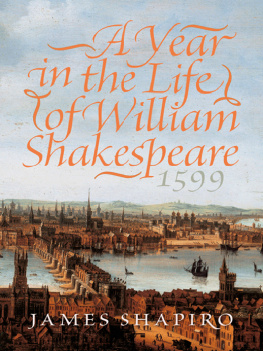Also by Catharine Arnold
UNDERWORLD LONDON: Crime and Punishment in the Capital City
THE SEXUAL HISTORY OF LONDON: From Roman Londinium to the Swinging City
CITY OF SIN: London and Its Vices
BEDLAM: London and Its Mad
NECROPOLIS: London and Its Dead
For my father, Robert Arnold
All the worlds a stage,
And all the men and women merely players:
They have their exits and their entrances;
And one man in his time plays many parts.
As You Like It , Act 2 Scene 7
Remember thee?
Ay, thou poor ghost, while memory holds a seat
In this distracted Globe.
Hamlet , Act 1 Scene 5
Contents
Introduction
The life of William Shakespeare, Britains greatest dramatist, was inextricably linked with the history of London. Together, the great writer and the great city came of age and confronted triumph and tragedy. Triumph came when Shakespeares company, the Chamberlains Men, opened the Globe playhouse on Bankside in 1599, under the patronage of the Queen herself. Tragedy came fourteen years later, when the Globe was burned to the ground after the thatched roof caught fire during an early performance of King Henry VIII. Tragedy touched the lives of many of Shakespeares contemporaries, from fellow playwright Christopher Marlowe and actor Gabriel Spenser, to the disgraced Earl of Essex and Guido Fawkes. In 1601, Essex made a bid for power with an attempted coup, only to flounder as his supporters drifted away, while it was Fawkes who made the most spectacular attempt to remove the monarch. Had Fawkes and his fellow plotters succeeded in November 1605, King James I and his Court would have been blown to kingdom come during the State Opening of Parliament. These extraordinary characters and events not only inspired Shakespeare, and his fellow playwrights, but were reflected in his work.
Globe, Life in Shakespeares London takes the reader on a virtual tour of the great city through Shakespeares life and work, and the achievements of his exceptional fellow authors, actors and pioneers of the theatre. By focusing on the early life and career of James Burbage, father of the more famous Richard and builder of the first theatre in London, I set the stage for Shakespeares entrance and the explosion of dramatic writing which characterised the closing years of the sixteenth century. Between the years 1576 and 1642, the year Parliament banned the staging of plays, theatre became Englands principal art form, and Shakespeare its foremost exponent, although he had notable rivals in the form of Christopher Marlowe, Ben Jonson, Beaumont and Fletcher, John Webster and Thomas Middleton.
In the opening chapter I imagine a young Shakespeare encountering London for the first time. The chapters that follow explore the way in which acting came of age as a trade during the 1570s and 1580s, and how the troupes of touring players who roamed the country lanes were transformed from scruffy vagabonds playing outside village inns to the finely dressed strutters of the Globe itself. Under the patronage of influential courtiers such as the Earl of Leicester and the Lord Chamberlain, companies of players performed at Court before Queen Elizabeth herself, in lavish productions characterised by rich costumes and glittering display. Strutting in rich velvet doublets bequeathed to the actors by their noble patrons, these men transformed themselves from humble players into mythical creatures: Romeo, Othello, Hamlet, Lear, Coriolanus, Prospero, good King Henry V and bad King Richard III.
The Elizabethan era was a time of great change, and acting just another way for young men to transform themselves. Shakespeare remains the supreme example of an ambitious provincial arriving in London and reinventing himself, but his journey from a small town to the London stage was replicated many times. In a city of deceptions, where appearance was all and nobody quite what they seemed, acting was the occupation to which attractive and resourceful young men were inexorably drawn. Whether fleet of foot and smooth of cheek, or built like a bear with a commanding bellow, whether beautifully dressed in clothes purloined from an aristocratic master, or wrapped in a cloak which masked a stained doublet and laddered hose, the resourceful individual with the gift of the gab gravitated to the profession most associated with outsiders and thieves. As Hamlet observes ( Hamlet , Act 3 Scene 2), if all else fails there is always the theatre:
If the rest of my fortunes turn Turk with me with two Provincial roses on my razed shoes, get me a fellowship in a cry of players, sir?
In the theatre, two worlds collided, the shimmering mirage of the playhouse, with its scenes of mystery and imagination, and the criminal underworld, itself built on pretence and deception. Philip Henslowe, impresario of the Rose, made his fortune in pawnbroking and prostitution. Henslowe opened a brothel next door to his famous theatre, and his stepdaughter Joan, who married the eminent actor Edward Alleyn, was whipped at the carts arse for running it.
Canny young drifters, more than capable of strutting and fretting their hour upon the stage, and sufficiently educated to ensure that they flung the dramatists words so that they ring around the arena of the Globe or the Rose, found a vocation parading their skills before a paying audience. Many of these actors also turned their classical education to good account, drawing on Greek verse or Latin prose exercises to create towering melodramas and incisive political satires. However, such were the changing tides of fortune in Elizabethan London that it was very easy for a writer to find himself on the wrong side of the law. In an age where the distinction between petty crime and grand treason was decidedly indistinct, being a professional writer was a dangerous occupation and many an author found himself in prison, or worse, for penning a political satire. When in 1597 Ben Jonson completed Thomas Nashes play The Isle of Dogs , the manuscript of which is now, sadly, lost, the play was deemed so seditious that Jonson and his cast were imprisoned in the Marshalsea. The Puritan and political commentator John Stubbe ( c. 154190) and his publisher William Page received an even more severe punishment in 1579, after Stubbe had criticised Elizabeth Is plans to marry the Duke of Anjou. Objecting on religious grounds (he feared that the Roman Catholic Duke might restore Catholicism to England), Stubbe added insult to injury by commenting that, at forty-six, the Queen was too old to have children, and that the union of the two was immoral, foul and gross. Elizabeth was less than delighted by these remarks, and the pamphlet, The Discoverie of a Gaping Gulf whereinto England is like to be Swallowed by another French Marriage , was publically burned in Stationers Hall. As for Stubbe and Page, they lost their right hands, the wrist being divided by a cleaver driven through the joint at the blow of a mallet. The historian William Camden recalled the scene in his Historie III. I remember, being then present, that Stubbs [ sic ], when his right hand was cut off, plucked off his hat with his left hand and said with a loud voice, God save the Queen. The multitude standing about was deeply silent, either out of horror at this new form of punishment, or out of commiseration towards the man.
For all its perks, an actors life, and a writers too, was a precarious one. The authorities were constantly looking for excuses to close the playhouses. Regular outbreaks of bubonic plague or even the threat of plague left playhouses dark for weeks at a time, while sedition became another weapon in the war against the theatres. When apprentices rioted following a production of Will Kemps A Knack to Know a Knave in 1592, the Lord Mayor wrote to Queen Elizabeth demanding that the pestilential playhouses be plucked down.


